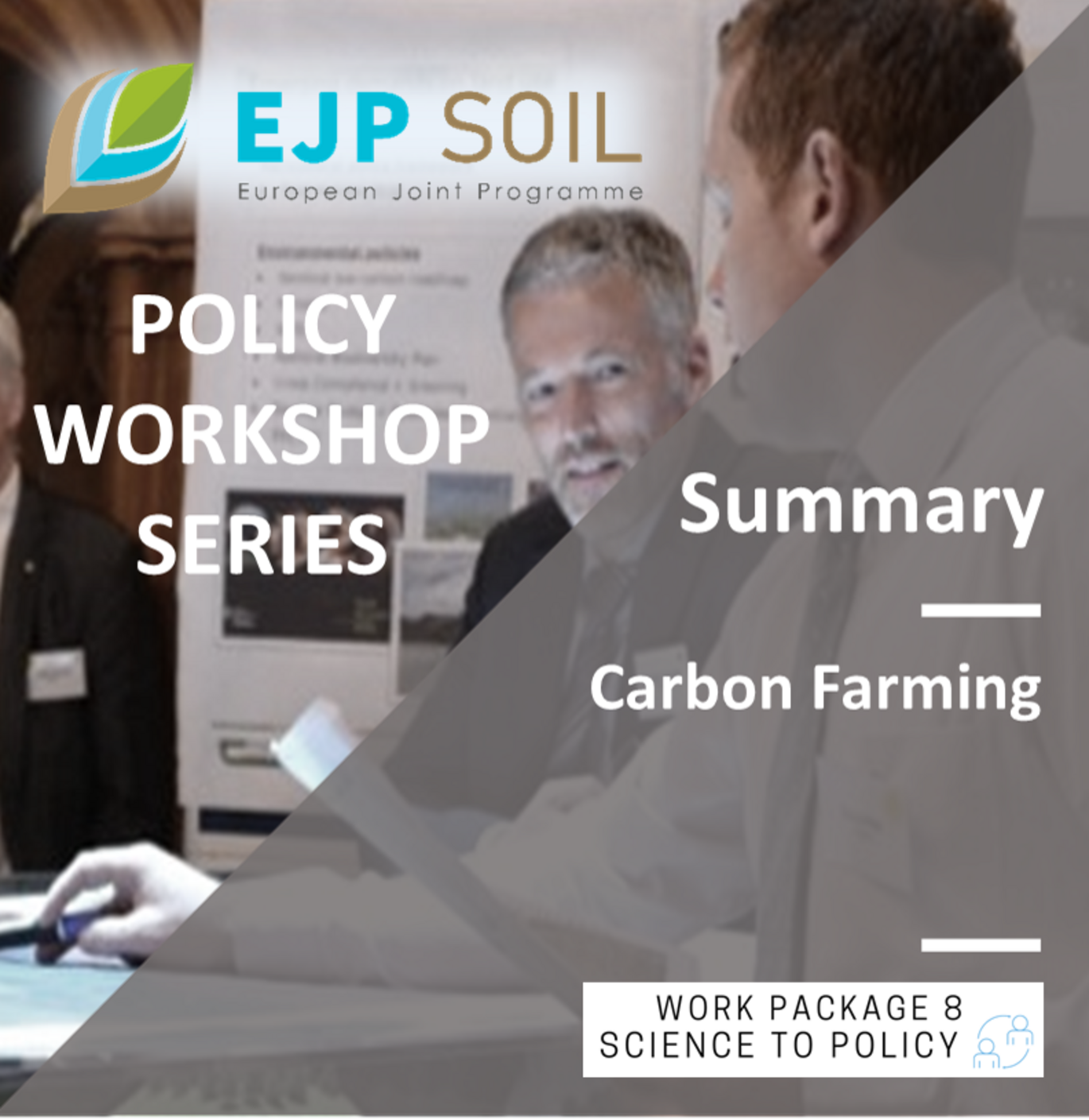Carbon Farming - Young farmers use video to access the information they need
274 distinct attendees from 34 different countries attended the Policy workshop on key questions the scientific requirements and information underpinning carbon farming schemes and economic business models.

On Tuesday 31st May 2022, EJP SOIL WP8 Science to Policy facilitated an EU level workshop titled “Carbon Farming: From scientific knowledge to policymaking and business models”. The objective of this workshop was to bring together different perspectives and experiences on carbon farming (CF) and focus on the scientific requirements and information underpinning carbon farming schemes and economic business models. It aimed to discuss how science is transformed into emerging carbon farming schemes and supports adoption and incentivisation.
Over the duration of the workshop, there were 274 distinct attendees from 34 different countries. The majority of these attendees classified themselves as researchers (48%), followed by those that classified themselves as policy makers at a regional, national or European level (18%). Other groups of policy stakeholders that were also present included NGO’s, Farmers/Landowners and those involved in financial institutions or businesses.
The workshop was split into two sessions; Session one included five distinct perspectives on CF. Session two consisted of six presentations highlighting different CF experiences and schemes that are currently in use. Here are some takeaways from the day.
Key takeaways:
Carbon farming practices should have synergies with other ecosystem services.
Young farmers access the majority of the information they need through educational/ demonstrative videos.
Building on synergies between public and private incentives is key. Currently under discussion are the principles on the integration between private and public incentives within the certification methodologies for carbon credits.
Engagement with attendees was very high with 78 questions from the audience answered either during live discussions or by panelists after their presentation using the Q&A function throughout the course of the workshop. When asked, the majority of respondents (73%) indicated that they found the content of session one to be relevant to their work and 61% of respondents indicated that the information presented in session two was useful for their work.
Below is the list of speakers and their presentations from the day as well as some key questions and answers.
For more information:
Author: Phillips, A.; Wall, D.
E-mail: avion.phillips@teagasc.ie